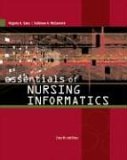I thought the following commentary would be better as a separate item, rather than buried as a comment, but it refers to Rod’s earlier post about the latest Medix UK survey (Doctors views of NHS IT programme, Weds. 11 January).
In the analysis and discussion of the latest Medix UK survey of doctors’ views on and attitudes towards NPunfIT and Disconnecting for Health, I am a little surprised that neither Medix UK (as far as their published results) or any of the many media commentators have undertaken the simple ‘net score’ approach to the surveys, which often throws up interesting ‘headline’ results (I have to admit, though, I have not exhaustively read all the commentary to date).I refer to the type of net score (taking the net difference between the positive and negative scores) that has been increasingly used by MORI and others in surveys of politician popularity and such (see
http://observer.guardian.co.uk/politics/story/0,6903,1651767,00.html and
http://www.mori.com/polls/2005/mdi050228.shtml for examples).
(And by the way, if anyone wants to now take up the idea, I will expect a hefty consultancy fee for suggesting it!)
Not all the items in the survey readily lend themselves to this type of analysis, due to many not having crisp, clear and unambiguous mid-point items to the questions (for example, is ‘satisfactory’ as a mid-point neutral, or actually positive? – is ‘vaguely aware’ a neutral point or positive towards awareness?). However, I have done the analysis on a few of the items from the publicly-available version of the survey results, and the following net scores show up. A positive (+) net score shows the degree of agreement, importance, etc. while a negative (-) shows disagreement or lack of support/importance.
Do you agree or disagree with the statement “NPfIT is an important priority for the NHS”?GP agree +2 Non-GP agree +37
How do you rate the NPfIT services?a Choose and Book:GP important -41 Non-GP important -12
b Care Records Service:GP important +46 Non-GP important +62
c Electronic Transmission of Prescriptions:GP important +37 Non-GP important +53
d Picture Archiving and Communications System:GP important +24 Non-GP important +73
e IT support for GPs (QMAS)GP important +70 Non-GP important +52
f email and directory service (Contact)GP important +45 Non-GP important +53
Do you agree or disagree with the statement “There has been adequate personal consultation with me about NPfIT”?GP agree -80 Non-GP agree -79
Do you think that the advent of the NHS Care Records Service is likely to mean that the confidentiality of patients’ records will be more or less secure than it is today?GP secure -63 Non-GP secure -31
NPfIT started in 2002. How do you rate its progress so far?GP -74 (if ‘satisfactory’ is taken as a neutral point) (or -66 if ‘satisfactory’ is taken as positive)
Non-GP -62 (if ‘satisfactory’ is taken as a neutral point) (or – 55 (if ‘satisfactory’ is taken as positive)
Do you agree or disagree with the statement “The expenditure of over £6bn on NPfIT is a good use of NHS resources”?GP agree -53 Non-GP agree -31
What is your level of support for NPfIT?GP - support -17 Non-GP - support +20
In almost all the items, non-GP’s are more positive about NPfIT and its services than are GPs, this despite the fact that there is a skew towards lower ratings on ‘how much information have you had about NPfIT’. This could be taken to suggest that the positive attitudes are to an ‘in principle support for systems that could deliver these things’ as opposed to support for what services and systems NPfIT says it will deliver. Possible support for this interpretation also comes from the disparity in ratings between the various ‘NPfIT services’ as the survey calls them, which generally have positive ratings, and the degree of support for NPfIT and its abilities to deliver, consult, etc. Interestingly, the most negatively-rated service (‘Booze and Chuck’ as it is known by many) is the one that there seems to have been most publicity about, while the other items, which have been less widely reported and discussed in the popular and medical press, seem to be more highly rated.
Perhaps not too surprisingly – the one item on which GP support is much higher is the QMAS system. As this is the system by which their ‘financial rewards’ (to use the official C4H term) are determined, this may not be too surprising.
Finally, from the ‘Department of Joined-Up Thinking’, perhaps one of our readers from the primary care community can explain the following: the Choose and Book system is (supposedly) all about expediting referrals from GPs to hospitals; the C4H website describes the QMAS system as providing ‘a positive incentive for GPs to treat patients in the community rather than referring them to hospital for treatment such as diagnosis or minor operations’. Am I the only one that cannot see those two things being fully congruent???
Peter Murray
Technorati Tags:
NHS,
NPfIT










